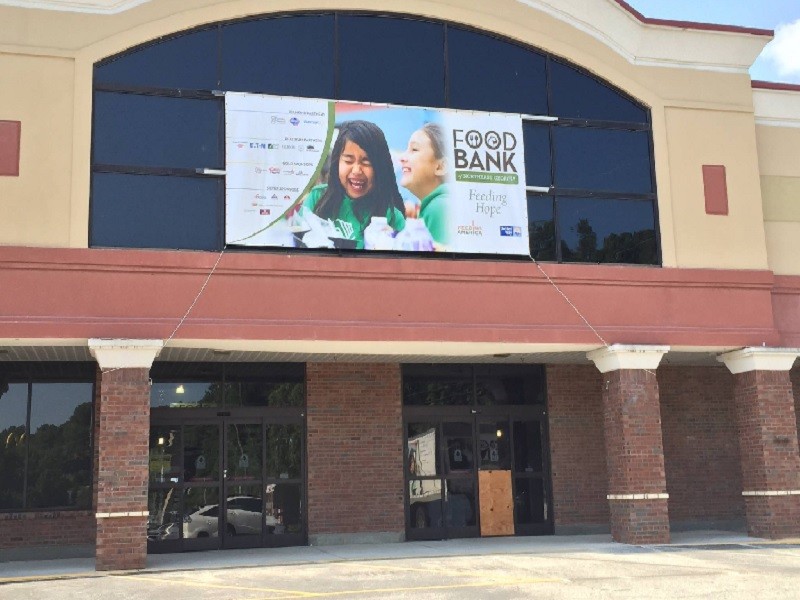CLAYTON - The Food Bank of Northeast Georgia recently celebrated plans for its new Rabun County food hub, a distribution warehouse and food processing center, with a groundbreaking ceremony.
The ceremony was part of the food bank s $6.4 million "A Fresh Approach to Ending Hunger" capital campaign aimed at combating hunger and spurring economic development in northeast Georgia.
Once complete, the complex will feature a production facility that includes flash freezing capabilities, a commercial kitchen, a teaching kitchen and a food distribution center. The food hub also will serve as a small business incubator and provide local food businesses with space and equipment to produce a marketable product.
Campaign organizers plan to complete construction this fall, with the processing center being operational early next year.
They say it could have a significant impact on the five-county region it will serve, which includes Rabun, Towns, White, Habersham and Stephens counties. With a focus on providing local farmers the resources to preserve a portion of their crops that otherwise might have gone to waste, Food Bank President John Becker believes the hub can increase the economic viability of farming in the region.
The project is made possible in partnership with University of Georgia Extension Service.
In addition to providing farmers with the business and technical training needed to make the most of the hub s new distribution system, UGA Extension also hired agricultural and natural resources Extension agent, Amber Arrington, to provide support to the project.
The food hub, which will be located at the Covered Bridge Shopping Center in Clayton, currently is seeking farmers from Rabun, Towns, White, Habersham, Stephens, Franklin, Banks, Hart, Jackson, Madison, Oglethorpe, Barrow, Clarke and Oconee counties.
In addition to helping local farmers, the frozen food line also will supply food bank clients with more locally sourced vegetables, helping the nonprofit to more efficiently address food insecurity in its 14-county service area.
According to Becker, an estimated 125,000 people in northeast Georgia are
food insecure,
meaning they lack reliable access to sufficient quantities of affordable, nutritious food. In the last fiscal year, the food bank distributed nearly 12 million pounds of food through 240 partner organizations throughout northeast Georgia. Despite the dramatic increase in food distribution, more than 6 million pounds of food still is needed to end hunger in northeast Georgia, according to Feeding America, the country s largest hunger relief charity.
Of the $6.4 million needed to complete the Rabun facility and finance the future expansion of the Athens facility, the food bank has raised $4 million.
We ve had an amazing response from donors thus far, but now we need the support of the community to help us complete this campaign,
Becker said.
I know we can solve hunger in northeast Georgia, and this project is a step in that direction.
About the Food Bank of Northeast Georgia
The Food Bank of Northeast Georgia recovers donated and salvaged surplus food and distributes it to human-service agencies.
The food bank was founded in 1992 as a way to end hunger in northeast Georgia as part of an overall community effort to alleviate poverty. In 1992, the food bank distributed approximately 350,000 pounds of food to 36 agencies. Since then, the organization has grown tremendously, distributing nearly 12 million pounds of food through more than 240 partner organizations in 2014. The food bank works with local, regional, state and national product partners to bring food into the community. Product partners include manufacturers, grocers\retailers, distributors, trucking companies, farms, businesses, individuals and organizations. Once food is received, it is sorted and stored in dry, refrigerated and frozen storage areas. Emergency food is then distributed to those in need through partner agencies and community programs such as mobile food pantry programs, Food 2 Kids and others. For more information, visit www.foodbanknega.org.









